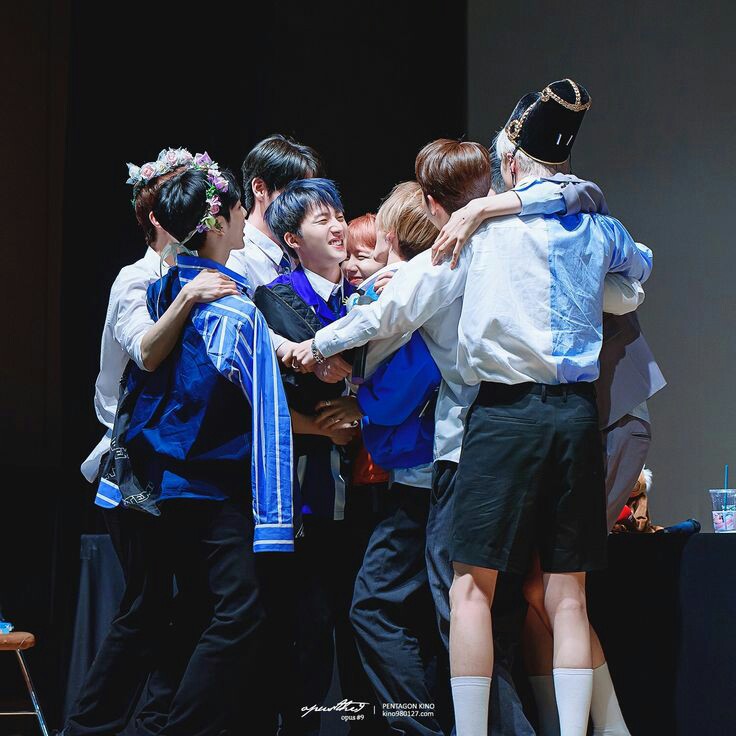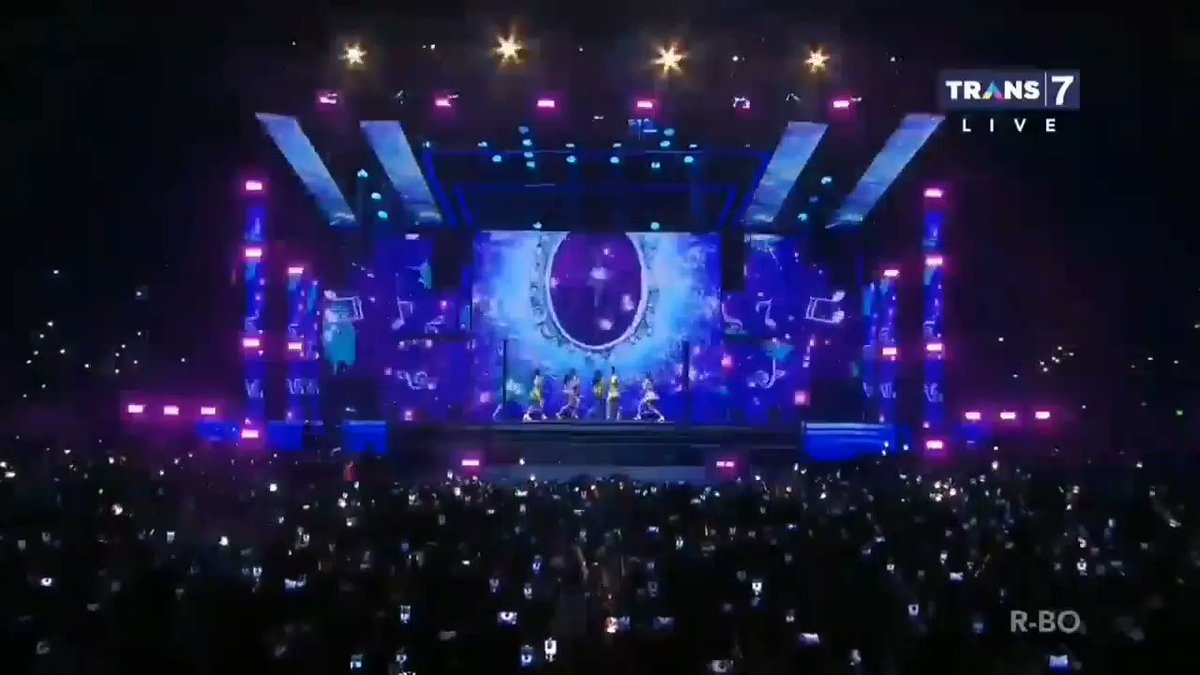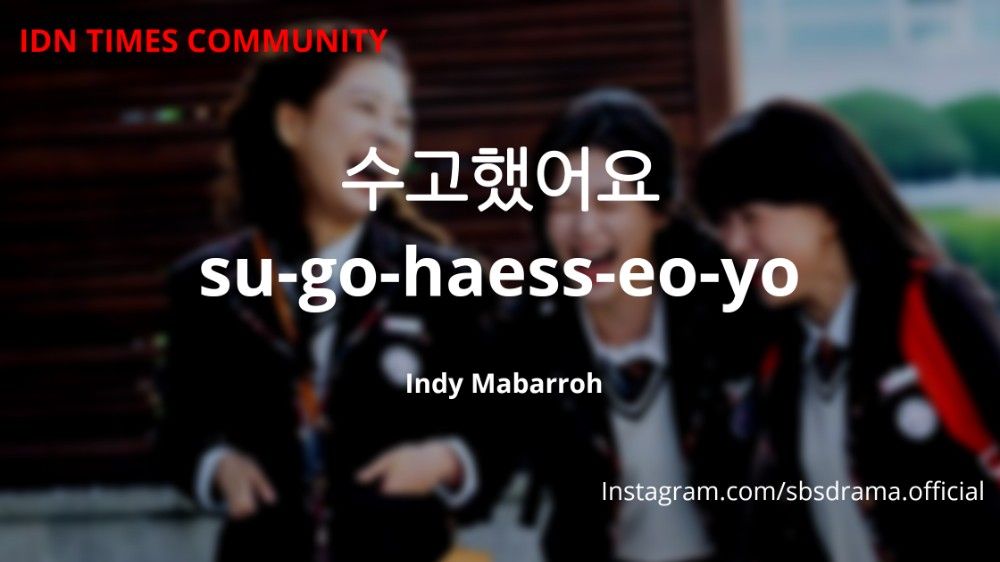
Gomawo Artinya Apa Dalam Bahasa Korea ? Adakah Kata Persamaannya
Formal 'Good Job' in Korean. 1. 고생하셨습니다! → Job well done! Great job! You've worked hard. gosaenghasyeotseumnida! *This is an especially great phrase to use after someone has completed a long day at work or finished something else difficult and time consuming. 2.

Ucapan Semangat untuk Idol/Bias dalam Bahasa Korea [Pt. 2] ROCKETCHAN
JINYOUNG - 잘 자 (Sleep Well) (Romanized) Lyrics. [Verse 1] Geudae oneuldo sugohaesseoyo. Geudae naeildo sugohagetjyo. Eolmana himi deureosseulkka meonjeo mutji aneulgeyo. Geujeo gidael su itge.

EPEX Official on Twitter "[🎁] 💕"MY ZENITH in JAPAN" TOKYO💕 EPEX 이펙스 WISH 위시 KEUM 금동현 MU
수고했어요 (Sugohaesseoyo) Sugohaesseoyo merupakan bentuk ucapan terima kasih dalam bahasa Korea yang diucapkan dalam situasi formal. Biasanya digunakan ketika mendapatkan pelayanan umum. Setelah mengenal bentuk ucapan terima kasih dari yang non formal sampai bentuk yang formal, maka saatnya kamu tahu bagaimana cara menimpali ucapan tersebut.

Lyrics Sugohaesseo, oneuldo ( 수고했어, 오늘도 ) by Oksang Dalbit (romaji) from album 28 JpopAsia
At the end of a tiring day, even if the sun has already come up. I'm finally closing my eyes. I close the door to my day later than others. Playfully tickle my earlobe. Because even though we've been in different worlds all day. We always end the day together. Your small shoulders, your small hands. Become my cozy blanket at the end of a.

sugohaesseo (oneuldohimnae) / Twitter
You can use the word 수고했어요 (sugohaesseoyo) to express to someone that they did a good job. This term uses the verb 수고하다 (sugohada), which means to make efforts or to labor. Here's a sample sentence: 오늘도 수고했어요. (oneuldo sugohaesseoyo.) You've worked hard today. "You're doing an amazing job" in Korean

Bahasa Korea Terima Kasih, Variasi dan Cara Mengucapkannya
Romanization. jeogi nasseoreun jageun golmokgil geu yeopen cheo-eumboneun nopeun garodeung cheo-eum naedideun balgeoreum ttara hanchameul na ireoke georeoga bonda. maeil banbokdoedeon nae harue jamkkanina swieoga bolkka jichin mameul dallaejudeon noeul bit sugohaesseoyo uri himdeun haru-ui kkeute nega isseo cham dahaengiya gakkeumeun neomeojyeodo seororeul uijihaeyo

𝓢𝓱𝓪𝓷𝓰 Follow Limit (ygtb9) / Twitter
수고했어요 (Sugohaesseoyo) - Direct translation: "Thank you for your hard work!" Synonyms: Great job! Thank you for your efforts! You did a great job! Easy Korean Words Of Affirmation. For anyone new to the Korean language, here are some straightforward and easy-to-learn words of affirmation. These phrases will help you communicate.

EPEX Official on Twitter "[🎁] 💕"MY ZENITH in JAPAN" TOKYO💕 EPEX 이펙스 WISH 위시 KEUM 금동현 MU
#1KoreanWordADayLearning korean language doesn't have to be overwhelming but has to be a discipline. Learn korean by memorizing at least one word a day, and.

EPEX Official on Twitter "[🎁] 💕"MY ZENITH in JAPAN" TOKYO💕 EPEX 이펙스 WISH 위시 KEUM 금동현 MU
2.3K views, 260 likes, 204 loves, 170 comments, 12 shares, Facebook Watch Videos from Lee Sol: Useful Korean Phrase - 수고했어요 (sugohaesseoyo) : I.

하루의 끝 (End of a day) [오프닝 Ver. (Opening Ver.)] Crush [JTBC Begin Again Korea Ep.10]
Here's my entry for Talk Talk Korea 2020's "Introduction to Korean Vocabulary". Sharing with you the term 'sugohaseyo' (수고하세요). Hope it was helpful and that.

Arti Annyeonghaseyo Anyong Pataga
.eomma, oneuldo sugohaesseoyo; Thank you for your hard work today, mom; If your mother works hard every day, this phrase can be a great way to show your appreciation for her efforts. 9. 엄마, 항상 감사해요.eomma, hangsang gamsahaeyo; I am always thankful to you, mom; Expressing your gratitude to your mother can make her feel loved and.

What does jeongmal sugohaesseoyo translate to? I can't figure it out ;-; It's something like, "you did well" (i.e., through expending a lot of effort and work). Normally, you say this after a job well-done. you have worked hard, you did well. fans using this to compliment their idols a lot nowadays. 수고했어요.

Rina. on Twitter "Yeaaaaaaah sugohaesseoyo Red Lepeut! >___
Great Positions All Over Korea: [Urgent] Looking for a native teacher (in Gwangalli, Namgu) Native Teacher Needed 3.000.000/month + housing. Native Teacher Busan 2.6 million won. Adult Job) March/April/May ,Seoul,Jongro and Gwanghwamunl, Max 3.4 mil won one by one class. Direct Hire—April Start M-F 9am-5pm Busan Centum City Central Seoul.

aza 💐 cf16 h11 on Twitter "otsukaresamadeshita sugohaesseoyo minnasan yeorobun everyone
sugohaesseoyo jeongmal gosaenghaesseoyo negedo nae eokkaega mungtukhan naye du soni jichin neoye haru kkeut pogeunhan wiroga dwegireul jayeonseure neowa sumeul matchugopa. mamkkeot ul sudo tto mamkkeot useul sudo eomneun jichin harue kkeut geuraedo geudae yeopimyeon eorinaicheoreom chingeoldaeda sumneomeogadeut utda nado eosaekhaejin nareul.

13 Ucapan Salam dalam Bahasa Korea yang Bisa Kamu Hafal
There are two common phrases that you will hear for "good job". From my experience, the first one is more casual than the second and I hear it used towards younger people a lot. The second one is what you can use towards coworkers and workers you may see at shops. The first one literally means "You did well": Formal 잘 했습니다.

Useful Korean Phrase 수고했어요 (sugohaesseoyo) I recognize your hard work and I respect it
수고 [ sugo ] 수고 means 'effort or/and energy to do something' or 'difficulties to do something'. Koreans use this expression to show that they acknowledge the effort, energy, or difficulties of the listener, and to encourage the listener to continue the hard work. For a good example, when Koreans visit where someone is working or.